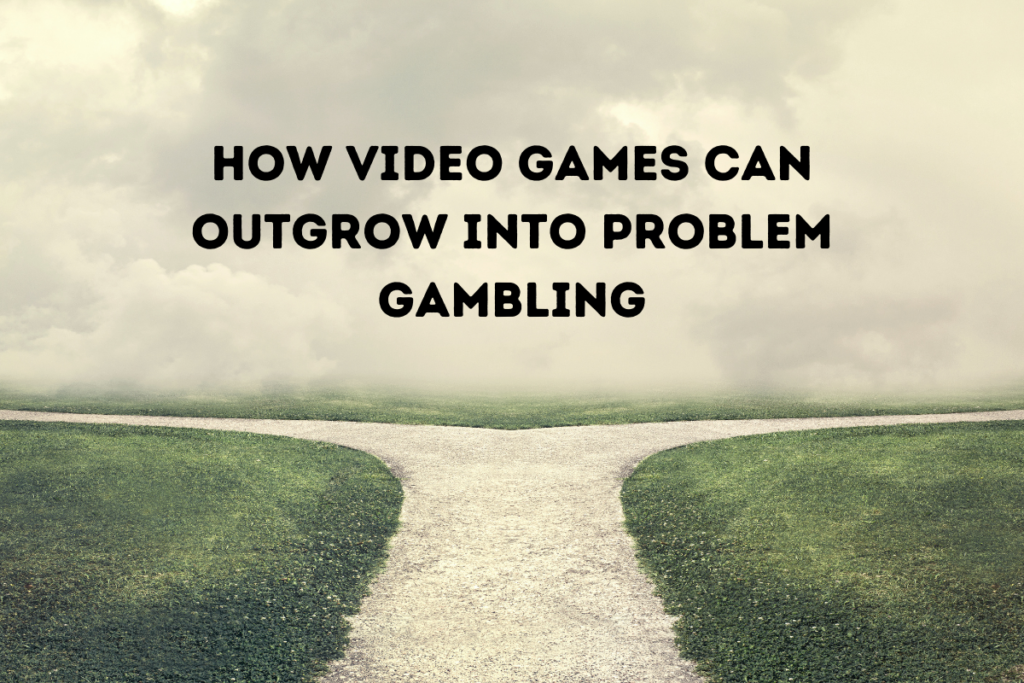How Video Games Can Outgrow Into Problem Gambling
When you are in isolation, indulging in video games may seem innocuous, and it may be the only thing you can do. Some games allow players to invest real money in order to aid their fictitious characters in their quest for success. According to recent research, here is where the problems start. Some video gaming behaviours, according to researchers in England, may unintentionally lead to compulsive gambling.

According to research conducted by the University of York, approximately 20% of gamers engage in activities related to both gaming and gambling. Games with token wagering, real money gambling, and “social casino” games all fall under this category. This relationship to gambling, according to Dr. David Zendle’s interview, extends way beyond earlier cautions about “loot boxes,” which provide gamers with a random selection of goodies but require real or in-game cash to access.
These findings, according to Zendle in a university release, imply that the link between gaming and compulsive gambling is more complicated than many people believe. Although loot boxes may attract consumers to keep spending money, the study claims that they aren’t the only way games foster obsessive behaviour. He also stated that, when we go past loot boxes, we can see that there is a slew of new gaming techniques that combine gambling components. They’re all connected to problem gambling, and they all appear to be common.
What Laws Apply to Video Games?
Is it possible that new legislation may affect the way your favourite video game operates? Governments, according to Zendle, should take a harder stance against games that demand money yet give you more mystery than genuine benefits. Researchers recommended British legislators prohibit the selling of treasure boxes to children in 2019.
In addition, there might be a self-exclusion scheme for gamers who don’t want to play anymore. The most popular example in gambling is GamStop, where players are restricted from UK sites. However, even GamStop users can play on NonGamStopSlots casino sites available in the United Kingdom. They also propose that the entire business of selling treasure boxes be classified as gambling.
Loot Boxes
The Federal Trade Commission was cautioned on Wednesday that video games can lead to compulsive gambling. As the specialists have spoken at an all-day conference hosted by the agency, the risk comes from a feature that has been ingrained in the bulk of the most popular video games in the latest years: loot boxes. A loot box is a virtual box that a player may purchase in a game with real or fake money in exchange for virtual weapons and other assistance that can help them win the game or personalize their characters.
Microtransactions are used to make the payments. Whereas a single loot box might cost 99 cents, frequent purchases or acquiring bundles or bundles can add up to hundreds of dollars over time for a youngster or other video game enthusiast. The allure of loot boxes can lead to gambling addiction for certain gamers, especially young men and boys, according to National Association On Problem Gambling Executive Director Keith Whyte. Adolescent veterans and active military personnel are likewise seen as susceptible. According to Whyte, because they engage in high-risk activity, they have at least double the prevalence of gambling issues as civilians.
He said that gambling addiction can lead to financial issues, emotional problems, inadequate work or school performance, poor mental and physical health, depression, substance misuse, and suicidal conduct, among other things. Many of the elements of loot boxes, he said, are comparable to those of slot machines.
According to Whyte, a part of loot box money from video game companies should be put aside in a health care trust fund and perhaps another autonomous vehicle for effective gambling addiction awareness, treatment, rehabilitation, and consultancy services.
An Uncovered Public Health Threat?
Researchers looked at slightly under 1,100 persons who, in terms of age, ethnicity, and gender, were similar to the population of the United Kingdom. According to the findings, 18.5 percent of the participants engage in gambling-related activities. The authors of the study warn that this might result in a new “public health concern.” They go on to say that these video games also get over the laws that are in place to regulate gambling websites.
According to Zendle, there are existing loopholes that allow some gambling-related aspects of video games to escape supervision. Social gambling dens, for example, are ‘video games’ that are essentially a wagering simulation: you may expend real cash in them, and the only thing that prevents them from being governed as legitimate gambling is that gains cannot be turned into cash.



